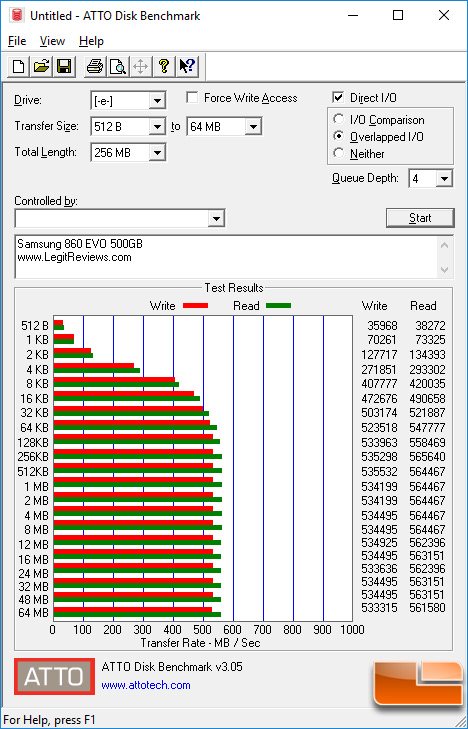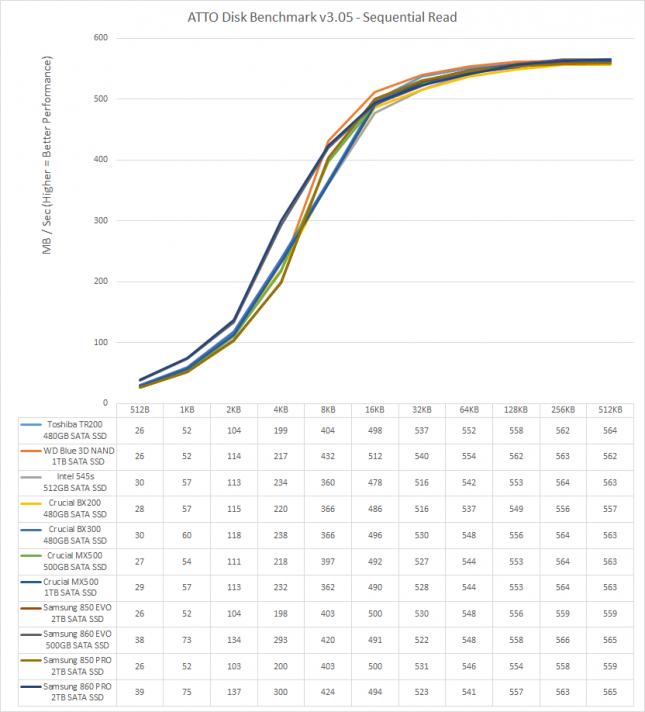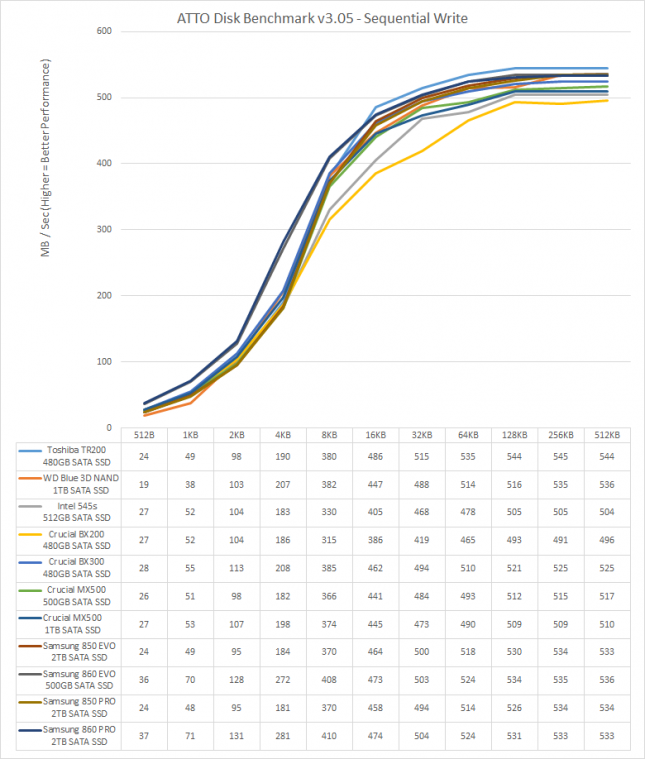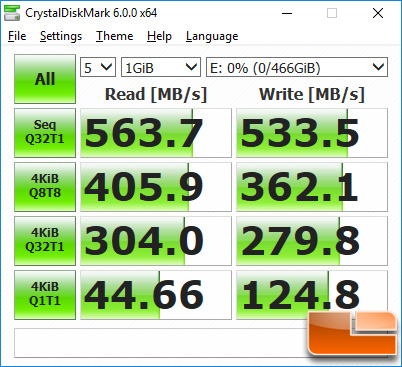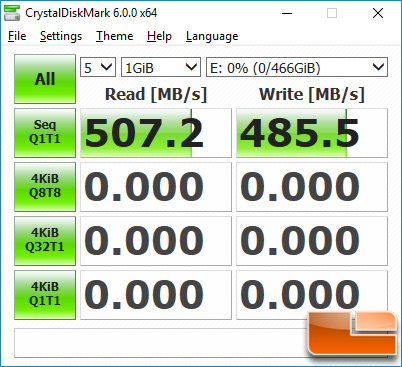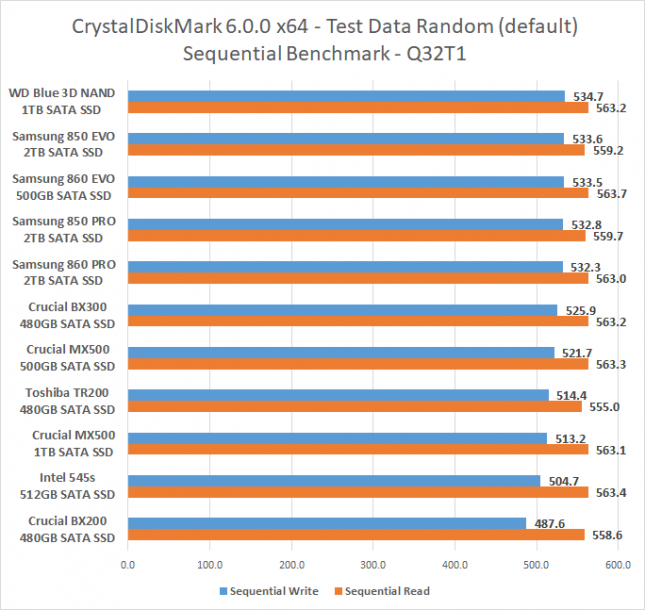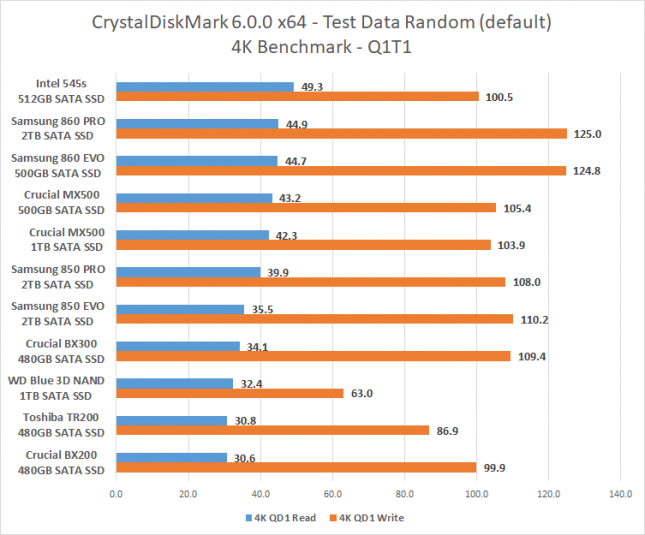Samsung 860 EVO 500GB SATA SSD Review
ATTO & CrystalDiskMark
ATTO v3.05
ATTO is one of the oldest drive benchmarks still being used today and is still very relevant in the SSD world. ATTO measures transfers across a specific volume length. It measures raw transfer rates for both reads and writes and places the data into graphs that can be very easily interpreted. The test was run with the default runs of 0.5KB through 64MB transfer sizes with the total length being 256MB.
ATTO – Samsung SSD 860 EVO 500GB:
Benchmark Results: ATTO showed the Samsung SSD 860 500 GB drive reaching speeds of up to 566 MB/s read and 536 MB/s write in the standard overlapped I/O benchmark. This drive is rated at up to 520 MB/s max sequential read and 520 MB/s max sequential write, so we exceeded both of those scores on our test platform. It should be noted that this is the first SATA III drive that we have ever tested to reach 566 MB/s sequential read speeds! The Samsung SSD 860 EVO really does milk all the performance one can get from the SATA III interface!
Benchmark Results: There isn’t a huge difference between most SATA III SSDs when it comes to sequential read/write performance, but Samsung’s 860 EVO 500GB drive stands out as having the best performance at the lower block sizes and is right up there at the higher sizes.
CrystalDiskMark 6.0.0 x64
CrystalDiskMark is a small benchmark utility for drives and enables rapid measurement of sequential and random read/write speeds. Note that CDM only supports Native Command Queuing (NCQ) with a queue depth of 32 (as noted) and shows the highest score of five runs.
CystalDiskmark – Samsung SSD 860 EVO 500GB:
Benchmark Results: The Samsung SSD 860 PRO 500GB drive reached 563.7 MB/s read and 533.5 MB/s write in the standard sequential write test and Random 4K performance was 44.66 MB/s read and 124.8 MB/s write.
Benchmark Results: The Samsung SSD 860 EVO 500GB drive reached 507.2 MB/s read and 482.5 MB/s write in the standard sequential write test at a queue depth of one.
Let’s look at some other benchmarks!

